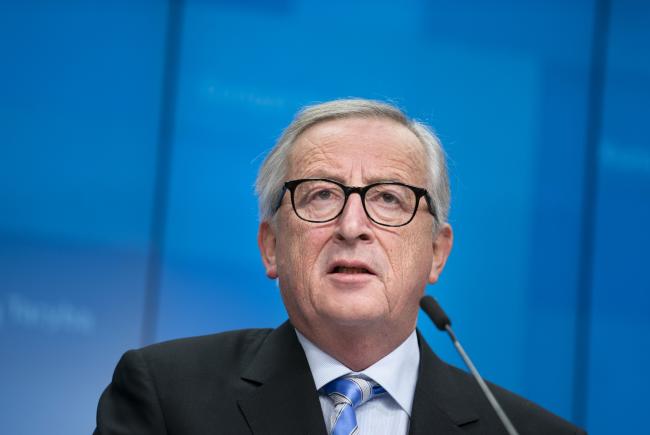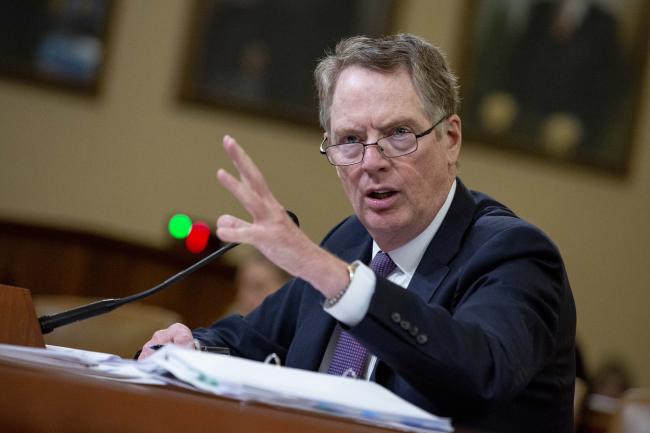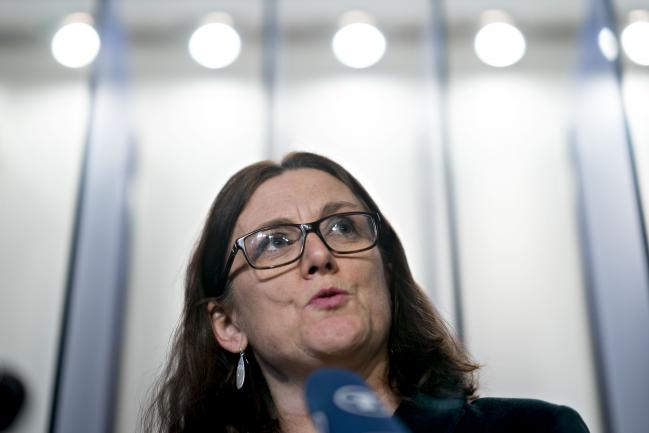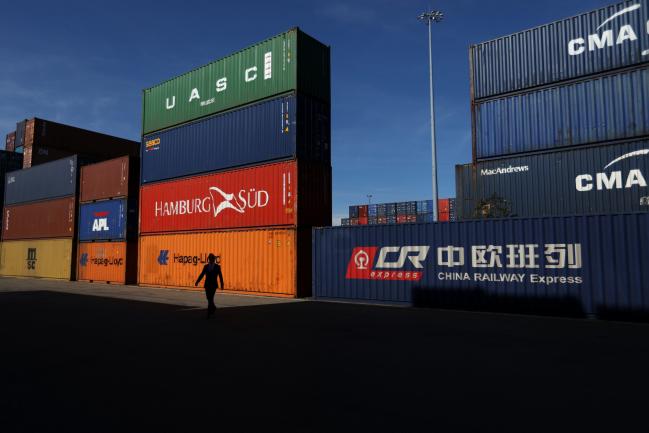(Bloomberg) -- The European Union’s chief trade negotiator urged President Donald Trump to stop imposing tariffs on the bloc if he wants a partner to help the U.S. pressure China to abide by rules governing the global economy.
In an interview in Washington, EU Trade Commissioner Cecilia Malmstrom said she and U.S. Trade Representative Robert Lighthizer have had productive meetings on how to address Chinese industrial policies and reform the World Trade Organization. While both sides agree on problems, they quarrel over the solution.
“We have a problem: China is dumping the market, China is subsidizing their industry, this creates global distortions. We can agree on that. So what is the solution? Well, we think it is to cooperate on China,” Malmstrom told Bloomberg News in an interview in Washington. “The solution to these problems is not imposing tariffs on the European Union. Why is that so hard to understand?”
She added: “If you want an ally and partner, this is not the way to go about it.”
Malmstrom also said EU member states made resolving the U.S. duties on European steel and aluminum a precondition before any bilateral trade deal can be concluded.
Tariff Threat
Trump last month received a Commerce Department report on the national-security risks of automobile and car part imports and has until mid-May to make a decision on whether to impose tariffs. He’s repeatedly threatened to hit EU vehicles with tariffs of as much as 25 percent.
The EU would retaliate against 20 billion euros ($22.4 billion) in American goods, Malmstrom said in the interview. A broad list of products is being drawn up, and among those targets could be segments of the U.S. auto industry, she said.
“I would do that with a very heavy heart,” she said. “We should work on common threats and common challenges and not impose tariffs on each other.”
The EU was “deeply offended” by the fact that the U.S. has designated it a national-security risk when the Trump administration imposed tariffs on EU steel and aluminum exports, Malmstrom said at an event earlier Thursday. She said those duties, the threat of even more tariffs targeting European autos and the “very harsh rhetoric” have led to a lack of trust in the transatlantic relationship.
But she is working on rebuilding it through a trade agreement that is limited in scope and would eliminate tariffs on industrial goods. Negotiating a more comprehensive agreement is “not possible at this stage,” she said.
Those talks have not formally started, though Malmstrom said the EU would be ready in the next month. The Trump administration concluded its domestic process before it can start talks, but Lighthizer and his deputies are busy with a U.S.-China trade deal and getting congressional approval for the U.S.-Mexico-Canada Agreement.
The U.S. and EU still disagree on the scope for any trade deal, with the U.S. insisting that agriculture would be part of it and the EU vehemently denying it was ever part of the preliminary agreement that Trump struck with EU Commission President Jean-Claude Juncker last July.
Lighthizer told Congress last week that the two sides were at a stalemate. Malmstrom declined to characterize it that way.
No Stalemate
“It’s not a stalemate from our point of view because it has never been our intention to include it in the mandate. We understand the importance for the U.S. to include it but we’ve been very clear from the beginning,” she said.
Asked if the EU would be willing to accept a quota deal that would restrict the volume of its exports of steel and aluminum, Malmstrom said only if that quota was based on traditional trade flows.
Despite the duties that have been levied, it’s important for the EU to have “some sort of positive agenda with the U.S.,” Malmstrom said.
EU officials have also been clear that they would walk away from the talks with the U.S. if the White House decided to impose the car tariffs.
“It will hurt the U.S. economy a lot as well. And then if you include Japan and Korea and Mexico and Brazil and all that, it would be very, very damaging for the global economy,” Malmstrom said. “So we really hope that this is not going to happen.’’



